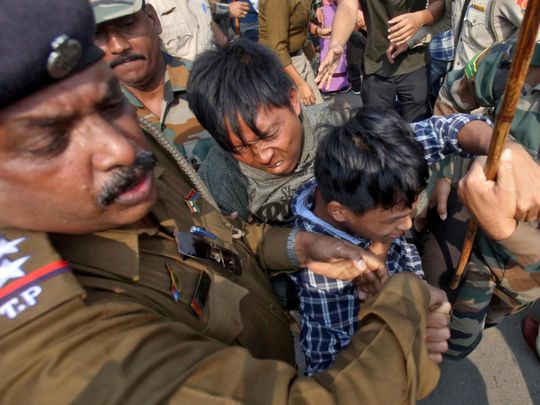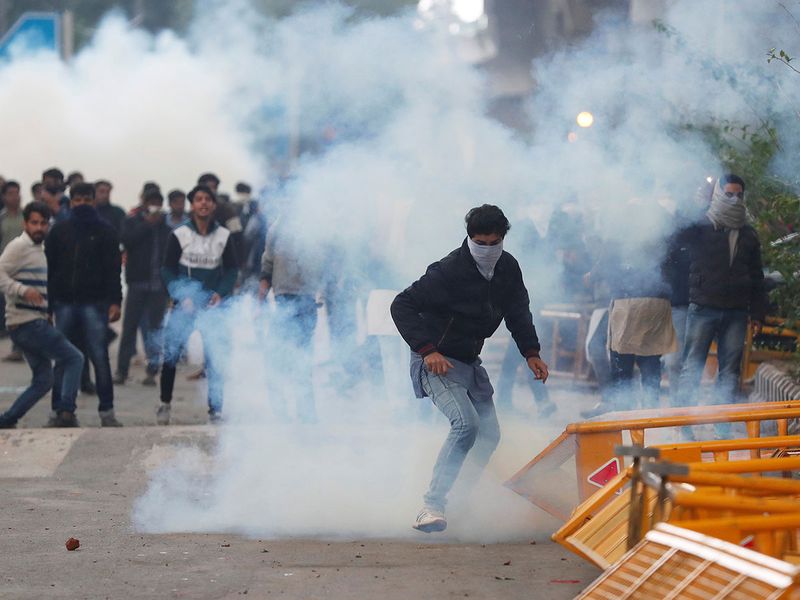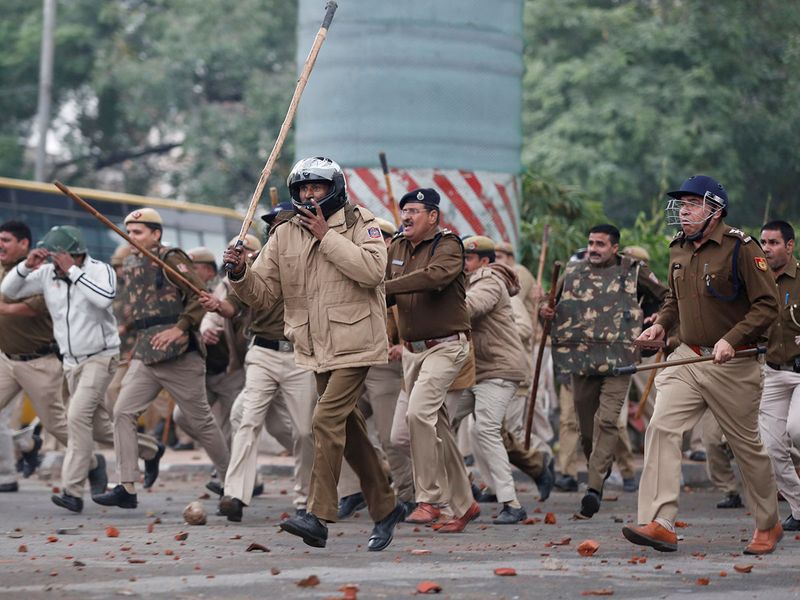
Guwahati: Protests against a divisive new citizenship law raged Saturday as Washington and London issued travel warnings for northeast India following days of violent clashes that have killed two people so far.
Many in the far-flung, resource-rich region fear the new legislation will grant citizenship to large numbers of immigrants from neighbouring Bangladesh, who they accuse of stealing jobs and diluting the region's cultural identity.
Hundreds of protesters rallied in the capital New Delhi Saturday, urging Prime Minister Narendra Modi's government to revoke the law that they said would "divide our secular country on religious lines".
Violence in protests
Protests took a violent turn in West Bengal state, where a portion of a railway station complex was set on fire. Burning tyres were thrown on rail tracks and key roads blocked by slogan-chanting protesters.
Tensions simmered in Guwahati in Assam state, the epicentre of the unrest, where medical staff said two people were shot dead and 26 hospitalised late Thursday after security forces fired live rounds.
Friday's funeral procession of 18-year-old Sam Stafford, who was killed in the firing, was attended by hundreds of angry and distraught mourners who shouted, "long live Assam".
"We were watching news all day on TV about the protests when my nephew left home in the evening. We asked him not to go but he went with his friends," the student's aunt Julie Stafford told AFP.
Internet ban
Anticipating further unrest, authorities extended an internet ban across Assam till Monday. Most shops were shut and anxious residents stocked up supplies Saturday when the curfew was relaxed during the day.
The Citizenship Amendment Act allows for the fast-tracking of applications from religious minorities including Hindus and Sikhs from Pakistan, Afghanistan and Bangladesh, but not Muslims.
Samujjal Bhattacharya from the All Assam Students Union, which has been at the forefront of the protests, told AFP the group would continue its fight against the new law "in the streets and in the court".

Exercise caution
Modi and Japanese counterpart Shinzo Abe postponed a summit that reportedly was due to be held in Guwahati from Sunday, and the United States and Britain warned their nationals to "exercise caution" if travelling to the wider northeast region.
Islamic groups, the opposition and rights organisations say the law is a part of Modi's Hindu nationalist agenda to marginalise India's 200 million Muslims.
'No need of protection'
He denies this and says that Muslims from the three countries are not covered by the legislation because they have no need of India's protection.
Modi's right-hand man Amit Shah on Saturday sought to reassure the northeastern states, saying the government would protect their "culture, social identity, language and political rights".
Ethnic tension
Assam has long been a hotbed of ethnic tensions. In 1983 some 2,000 people, mainly Bengali Muslims, were butchered in what became known as the Nellie massacre.

This year a citizenship registry left off 1.9 million people - many of them Muslims - unable to prove that they or their forebears were in Assam before 1971, leaving them to face possible statelessness, incarceration or even deportation under the new law.
Sanjoy Hazarika, a professor at Delhi's Jamia Millia Islamia University, said the law had renewed concerns that a million or more people in Assam would get "legitimised" because they belonged to a "particular religious community".
"There has been this agitation (against) illegal migration from Bangladesh over many years, it's a pretty old issue and the concern in Assam is that people will become a minority in their own land if they haven't become that already," he told AFP.
On Friday university students in Delhi clashed with police, who used batons and tear gas shells to quell the protests.
The passage of the bill also sparked angry scenes in both houses of parliament this week, with one lawmaker likening it to anti-Jewish legislation by the Nazis in 1930s Germany.
Rahul Gandhi of the opposition Congress party has called the law "an attempt to ethnically cleanse the northeast".








